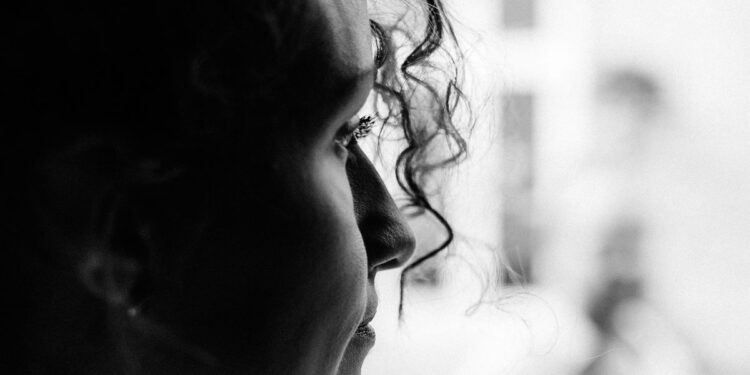Body Dysmorphia: How Standards of Beauty Impact Mental Health

By Marie Miguel
The beauty industry is vast, and its reach is similarly large. While a focus on appearance can easily intersect with a focus on health as a whole, this is often not the case in the industry, as most discussions of beauty are used to sell products, rather than promote health. The constant focus on beauty can have a very real effect on people, and can lend itself to the development of mental health disorders like Body Dysmorphia.
Body Dysmorphia: a Guide
Body Dysmorphia (also called Body Dysmorphic Disorder) is similar to other dysmorphic disorders, in that it involves the brain no longer seeing reality in something, or distorted thoughts or images. In Body Dysmorphia, the distortions in your thought processes specifically involve your perception of your own body. Body Dysmorphic Disorder can focus on a single perceived flaw—say, an over-large nose—or may focus on a series of traits, such as the size of one’s hips and thighs.
The focus on the afflicted person’s perceived flaws can powerfully and negatively impact their behaviors and thought processes. While this may not seem like a significant issue to someone who has not experienced the effects of the disorder, it is actually extremely problematic and can quickly and easily become extremely harmful.
People who struggle with this disorder are at greater risk for developing eating disorders, and having other disorders, including depression and anxiety. Finding co-morbid conditions that frequently come along with Body Dysmorphia may be as simple as browsing through possible conditions on Mind Diagnostics, or may involve a more thorough evaluation with a mental health professional. In either case, there is no denying the domino effect of declining mental health, and Body Dysmorphia is often accompanied by other conditions and disorders.
What Body Dysmorphia Is Not
A discussion of Body Dysmorphia often focuses on perceived flaws in someone’s fire, rather than flaws found elsewhere. The disorder is also frequently ascribed to females, exclusively, rather than being acknowledged as an issue with males and females, alike. These are hazardous characterisations of the disorder, however, as Body Dysmorphia can affect people of all ages and backgrounds.
Body Dysmorphia is also not synonymous with an eating disorder. People with Body Dysmorphia do not always go on to develop an eating disorder, and equating the two can introduce some stigma to both conditions, and can impair people with either one of these conditions in their efforts to seek help.
Beauty Standards and Mental Health: Learning to Cope
Although media depictions of beauty and attraction cannot bear the weight of deteriorating mental health or the advent of Body Dysmorphic Disorder altogether, there is no denying that media depictions of beauty heavily influence mental health and can negatively impact self-esteem and self-perception. It can seem simple enough to say that you’ll refrain from looking at social media use and come out unscathed, but the issue is not quite as straightforward. Billboards and other advertisements are difficult to get away from, and although limiting social media can be helpful, beauty standards are visible in supermarket aisles and even neighborhood walks.
In the absence of being able to simply ignore the beauty standards that have become so pervasive, what are people to do? The answer is simple enough, but may not be easy. The most effective strategy to maintain mental health in the midst of countless companies actively invested in you feeling poorly about yourself is self-care and exposure management. Limit exposure to unrealistic depictions of bodies and beauty as much as possible by limiting social media use and avoiding areas you might know as triggers. Practice self care by actively caring for your physical and mental health as much as possible.
If Body Dysmorphia and other negative self-image issues persist, it may be necessary to speak with a mental health professional. Therapists and counselors can help by encouraging health coping strategies, identifying the roots of the issue, and practicing steps toward health.
Marie Miguel has been a writing and research expert for nearly a decade, covering a variety of health- related topics. Currently, she is contributing to the expansion and growth of a free online mental health resource with Mind-Diagnostics.org. With an interest and dedication to addressing stigmas associated with mental health, she continues to specifically target subjects related to anxiety and depression.










